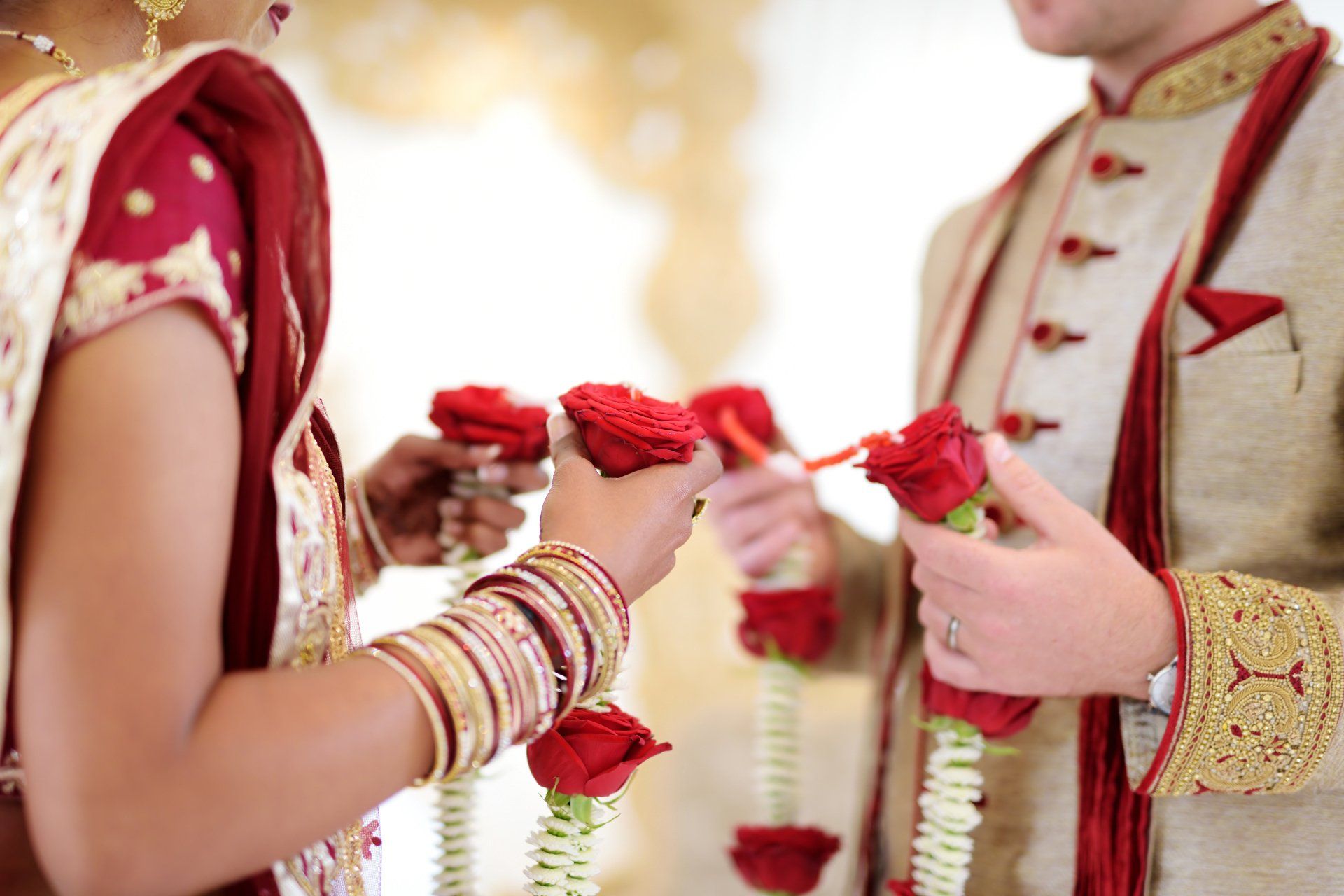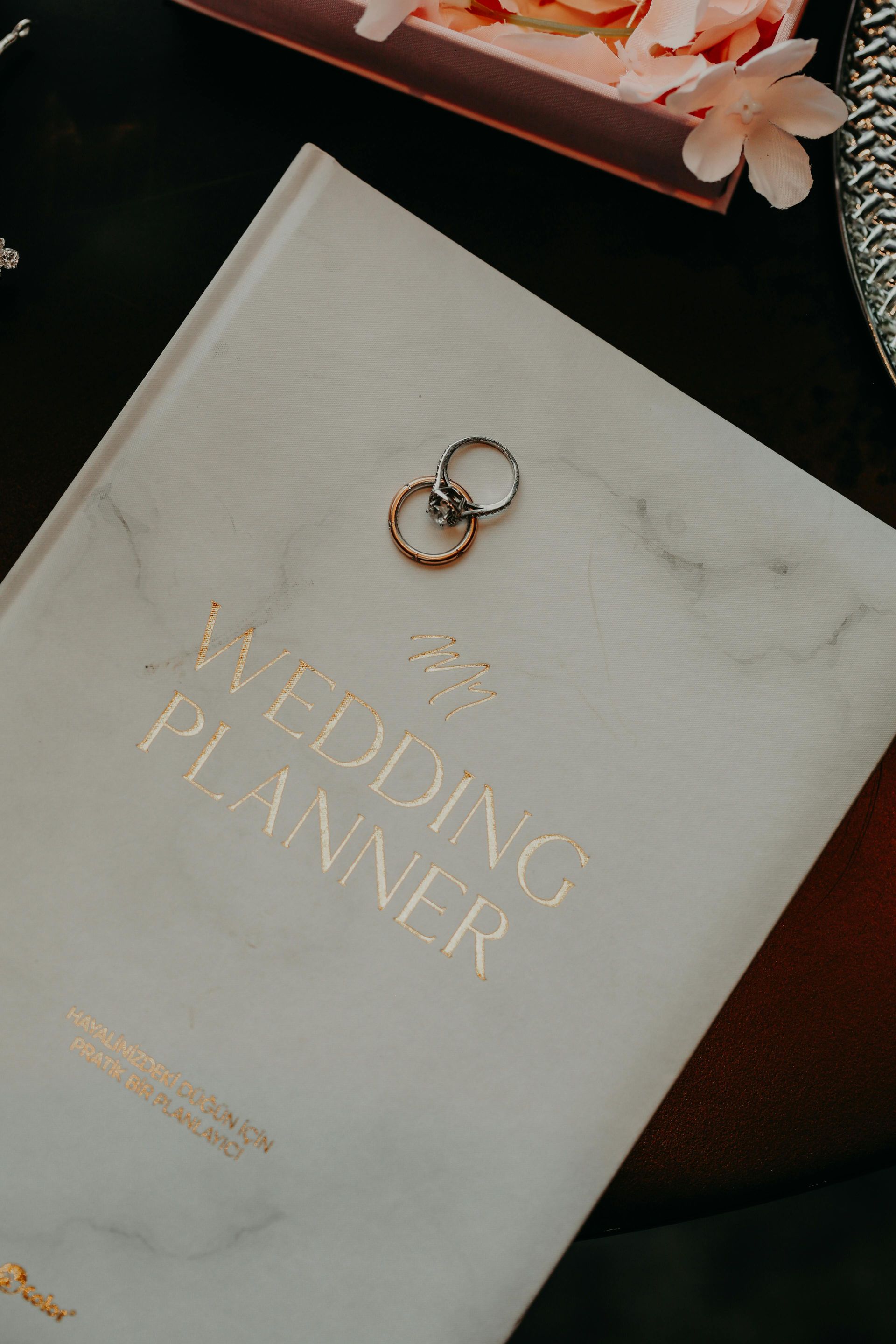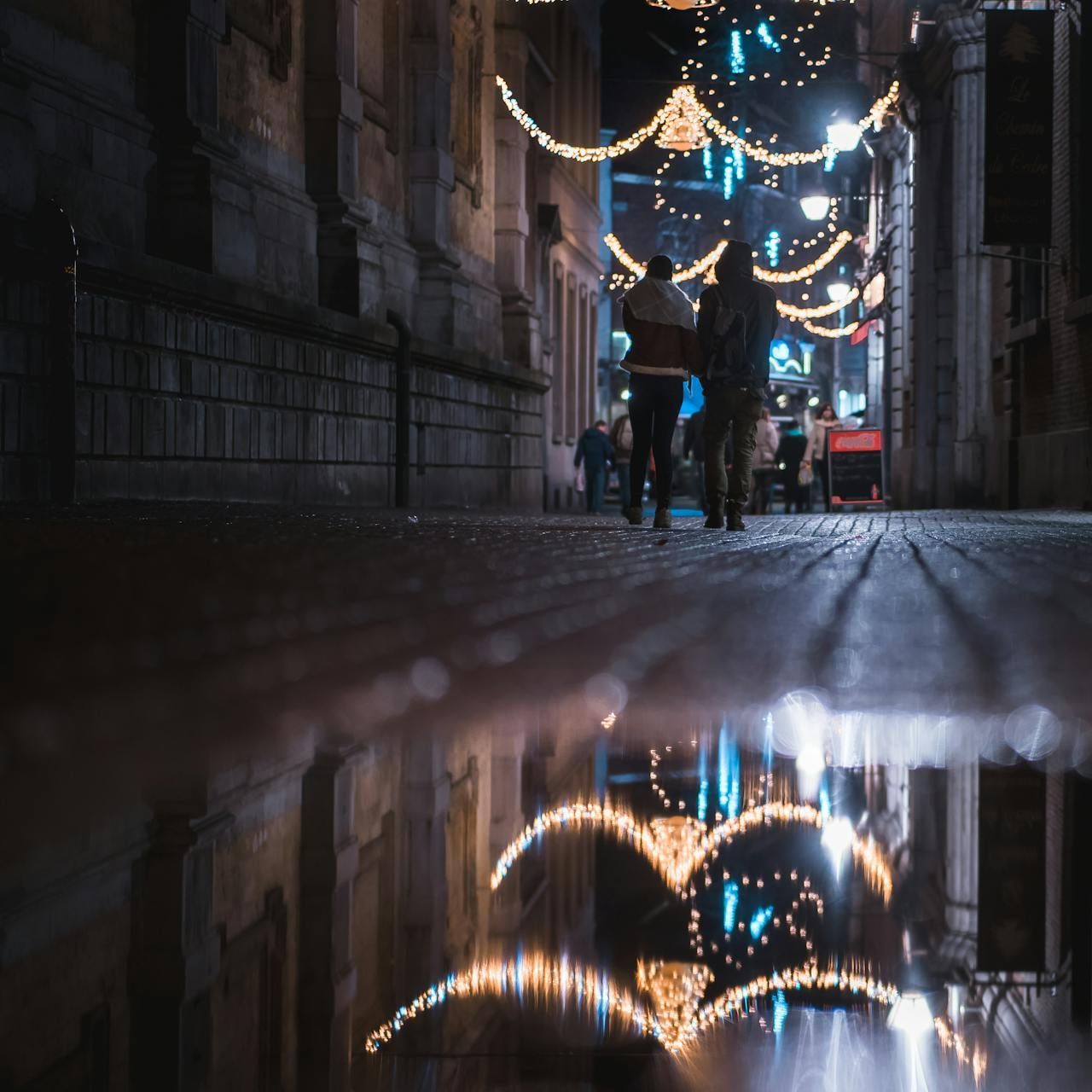
Vivid and drenched in culture, Hindu weddings are a celebration of two people coming together in marriage and binding their families together forever. Ceremonies and rituals performed over the course of the wedding celebrations are often a blend of cultural tradition and the wishes of the bride and groom. They are intricately planned and usually last several days — each day dedicated to a different ritual.
Unlike traditional American weddings (also known as Western weddings) which tend to be more intimate, Hindu weddings welcome immediate family members and distant relatives from all over to celebrate the union of the bride and groom. While Western weddings and Hindu weddings share the same cause for celebration, they are quite different in their traditions and customs.
Five Key Elements to a Hindu Wedding
- The wedding date is determined at the couple’s engagement party by a priest who ordains the most favorable date and time to conduct their ceremony based on each of their horoscopes.
- The day before the wedding, henna (or mehndi) is applied to the bride’s hands and feet during what’s called a Mehndi party. Swirls and floral designs are drawn directly onto the hands and feet to dry and crack off — leaving a temporary stain on the skin. Mehndi is believed to have medicinal properties and is in part intended to help ease the bride’s nerves.
- It is tradition for the bride to wear a red dress called a saree or lehenga that is embroidered with 24-karat gold thread and decorated with crystals. Red symbolizes prosperity, new beginnings and feminine strength. Some Hindu brides are beginning to choose different colors for their wedding dresses like yellow, pink, gold, brown, orange or peach.
- The groom’s entrance is often led by a parade of friends and family where they are welcomed by a rice toss (known as akshat) and the groom is presented with a floral garland and a plate holding a burning lantern. It’s also not uncommon for the groom to enter on a horse, elephant, or in modern weddings, a sportscar.
- The couple’s sendoff (known as the vidaai ceremony) at the end of the night is emotional and heartfelt. Vidaai ceremonies symbolize the end of wedding festivities and allow the bride’s parents to give their final farewell as they send their daughter off in marriage. Sometimes, the bride will collect rice and coins as she exits to be tossed over her head to represent her appreciation for her parent’s dedication and love.
How Long Do Hindu Weddings Last?
Most traditional Hindu weddings span three days but can go as long as five — each day marking a different tradition. The actual nuptials are exchanged on the third day, along with the reception. The two days leading up to the wedding ceremony are designed to be more intimate. Usually, only close family and friends are invited to be a part of the first two days.
Day one, the Mehndi Party: This is an event for the bride and her closest female friends and family members. This is where the henna is applied to the bride (including her bridesmaids). The process can take anywhere from two to six hours to complete. While the groom’s family can certainly take part, the bride’s parents typically are the hosts.
Day two, the Sangeet: This event is where the families gather to sing and dance in anticipation and joy of the couple’s union. Often the bridesmaids and/or family members will perform choreographed dances to spark celebration and happiness. Conveniently enough, sangeet translates to “sung together.”
Do the Newlyweds Kiss After the Ceremony?
It is tradition for the bride and groom not to kiss at the end of the ceremony. However, more Hindu weddings are embracing some Western wedding traditions like the kiss at the altar. It all comes down to the preferences of couples and their families.
Will There Be Dancing at Hindu Weddings?
So much dancing! Dancing is key to a successful Hindu wedding. You can count on friends and family alike out on the dance floor for most of the night. This doesn’t include the choreographed dance performances you often see at Hindu weddings.
Are You Looking for the Perfect Venue for a Large Wedding in the Washington, D.C. Metro Area?
CrystalView’s large, opulent ballroom options are perfect for wedding celebrations of all types, including vibrant traditional Hindu weddings. Contact us today to schedule a tour or learn more.



